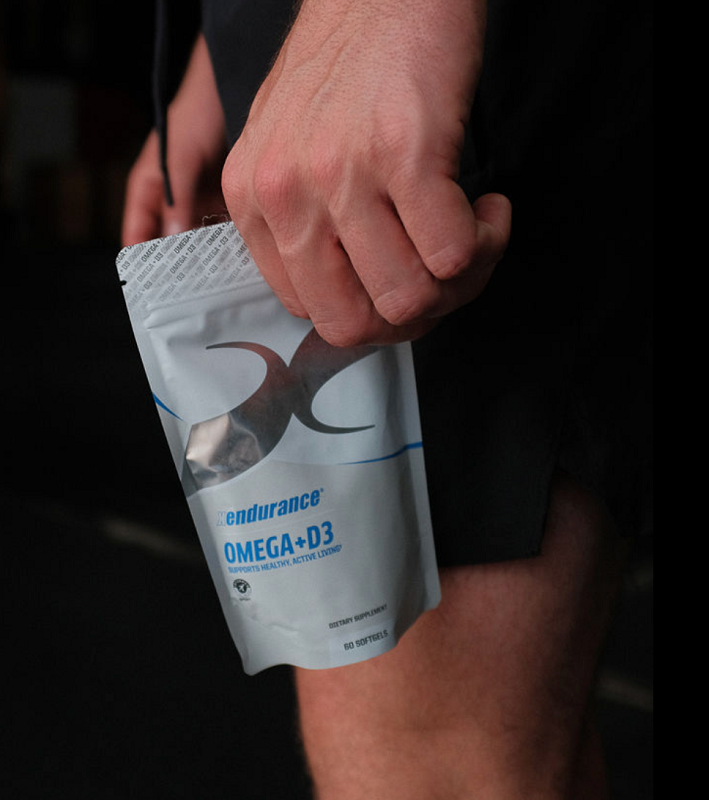Vitamin D is important for athletes and active individuals aiming to boost their performance and recovery. This important nutrient plays an important role in muscle function, immune support, and overall wellness. In this article, we'll explore various vitamin D sources and their benefits, helping you understand how to add them to your daily routine.
Why Vitamin D is Essential for Performance and Recovery
Vitamin D is more than just a nutrient; it's very important for your body. Here are some key reasons why it's important:
- Muscle Function: Vitamin D helps improve muscle strength and function, which is important for athletes. It aids in muscle contraction and reduces the risk of injuries.
- Immune Support: A strong immune system is vital for athletes to stay healthy and perform at their best. Vitamin D helps your body fight infections and illnesses.
- Overall Wellness: Beyond muscles and immunity, vitamin D helps with bone health, mood, and heart health. To learn more about its benefits, check out the Non-Musculoskeletal Benefits of Vitamin D.
Understanding the importance of vitamin D can help you make informed choices about your diet and lifestyle, ensuring you maintain optimal levels for peak performance and recovery.
Common Vitamin D Sources
Vitamin D is important for maintaining good health and supporting athletic performance. Here are some common sources to help you get enough vitamin D:
- Sun exposure: The sun is a natural source of vitamin D. Spending time outdoors, especially during midday, can help your body produce vitamin D.
- Vitamin D foods: Certain foods are rich in vitamin D, such as fatty fish, egg yolks, and fortified foods.
- Supplements: Taking vitamin D supplements is an effective way to make sure you get enough of this important nutrient, especially if you have limited sun exposure or dietary restrictions. Consider Omega+D3 for a high-quality supplement option.
Adding these sources to your daily routine can be easy:
- Spend about 10-30 minutes in the sun several times a week.
- Add vitamin D-rich foods to your meals.
- Think about taking a vitamin D supplement if you need it.
Vitamin D Foods and Their Benefits
Eating foods containing high vitamin D can provide many health benefits. Here are some of the best vitamin D foods and how they can benefit you:
- Fatty fish: Fish like salmon and mackerel are great sources of vitamin D. They also provide omega-3 fatty acids, which support heart health.
- Fortified dairy and plant-based milk: Many milk products are fortified with vitamin D, making them a convenient way to boost your intake.
- Egg yolks: Eggs are a food that can be used in many dishes. The yolk contains vitamin D, as well as other important nutrients.
- Fortified cereals: Some breakfast cereals are fortified with vitamin D, making it easy to start your day with vitamin D.
Including these foods in your diet can help you maintain adequate vitamin D levels. Here are some tips:
- Enjoy grilled or baked salmon for dinner.
- Add fortified milk to your morning coffee or cereal.
- Incorporate eggs into your breakfast or lunch.
- Choose fortified cereals for a quick and nutritious breakfast option.
Increasing Vitamin D Levels Naturally
Increasing your vitamin D levels can be easy with some lifestyle changes. Here are some tips to help you get more vitamin D naturally:
- Sun Exposure: Spend time outdoors in the sunlight. Aim for 10-30 minutes of midday sun exposure several times a week. The time needed depends on your skin type, where you live, and the season.
- Dietary Changes: Incorporate more foods containing high vitamin D into your diet. Focus on fatty fish, egg yolks, and fortified foods like dairy and plant-based milk.
- Supplements: Think about taking vitamin D supplements, especially during the winter months or if you live in an area with limited sunlight. Check out Xendurance's Immune Boost for a comprehensive supplement option.
- Active Lifestyle: Do outdoor activities like walking, running, or playing sports to get more sun.
- Reference: For more tips, check out 7 Effective Ways to Increase Your Vitamin D Levels.
Recognizing Low Vitamin D Symptoms in Females
It's important to recognize the signs of low vitamin D levels, especially in females, as it can affect overall health and performance. Common symptoms include:
- Fatigue: Feeling very tired or low on energy even after enough rest.
- Muscle Weakness: Having muscle pain or weakness, making it hard to do daily activities or exercise.
- Mood Changes: Feeling more anxious or depressed.
If you experience any of these symptoms, it's important to take action. Consider assessing your vitamin D intake and making necessary adjustments to your diet or lifestyle. Maintaining adequate vitamin D levels is important for overall well-being and performance.
Global Prevalence of Vitamin D Deficiency
Vitamin D deficiency is a common problem affecting many people worldwide. Studies show that a significant portion of the global population does not get enough vitamin D. This deficiency can lead to various health problems, making it important to understand and address.
According to the study on Vitamin D deficiency, deficiency rates vary by region, but it's a common problem everywhere. Factors include limited sun exposure, diet, and health conditions that affect vitamin D.
Here are some risks associated with vitamin D deficiency:
- Increased risk of bone fractures
- Weakened immune system
- Mood disorders, such as depression
- Muscle weakness and fatigue
Maintaining adequate vitamin D levels is essential for overall health and wellness. Regularly checking your vitamin D levels can help you stay on top of your health and take necessary actions to prevent deficiency.
Summary and Call to Action
In summary, vitamin D plays a vital role in performance and recovery for athletes and active individuals. Getting enough vitamin D can help your muscles, immune system, and overall health. Key sources of vitamin D include sun exposure, vitamin D-rich foods, and supplements.
To increase your vitamin D levels:
- Spend time in the sun safely
- Incorporate foods containing high vitamin D into your diet, such as fatty fish, egg yolks, and fortified foods
- Think about taking vitamin D supplements, especially in winter or if you don't get much sun
If you suspect you might have low vitamin D levels, especially if you experience symptoms like fatigue, muscle weakness, or mood changes, it's important to take action. Regularly assess your vitamin D intake and make necessary adjustments to your diet and lifestyle.
For additional support in maintaining optimal vitamin D levels, check out Xendurance's supplements. Our products are designed to enhance performance, endurance, and overall wellness, helping you stay at your best. Consider trying our Essential supplement for comprehensive support.









Leave a comment
This site is protected by hCaptcha and the hCaptcha Privacy Policy and Terms of Service apply.